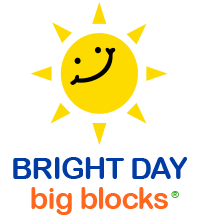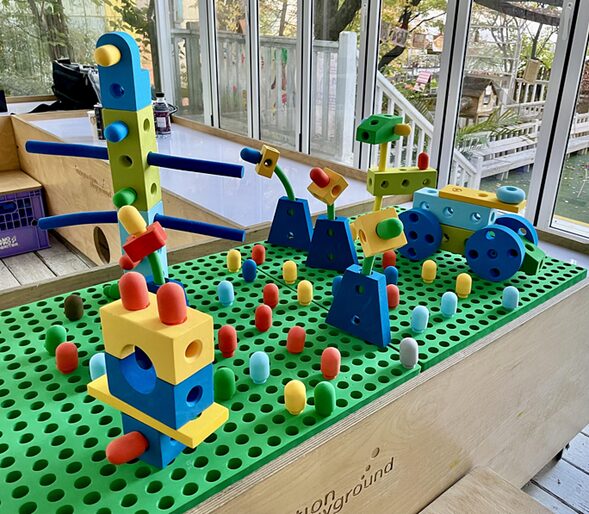1. Development of Fine Motor Skills
The manipulation of building blocks in a construction area is a perfect exercise for your kid’s fine motor skills since building blocks come in many different shapes and sizes. The grasping, lifting, and arranging of building blocks strengthen their small muscles in their fingers and hands, providing the dexterity required for other tasks as they develop. Manipulating big blocks also helps with gross motor skills development.
2. Development of Hand-Eye Coordination
As kids engage in construction activities, they must visually assess where blocks need to go and then guide them accordingly with their hands. The constant feedback loops between their hands and eyes are critical for development.
3. Development of Problem-Solving Skills
Construction tasks present endless challenges. Towers can fall and bridges can fail to connect. What’s more, the final site may fail to look as envisioned. The setbacks presented by the construction area offer an opportunity for developing logical reasoning, critical thinking, and emotional resilience, which are critical skills needed in life.
4. Language Development
The construction area also offers a rich context for language development. As kids build, they naturally discuss their creations using descriptive language and action words. Additionally, they’ll negotiate roles, engage in collaborative conversations, and resolve conflicts. Besides improving their communication skills, the interactions will also expand their vocabulary and teach expression.
5. Development of Mathematical Skills
The construction area is also perfect for teaching fundamental math concepts. To create cities and towers, kids must learn how to count, sort, measure, and estimate. They’ll also learn spatial awareness/reasoning and basic geometrical building concepts like balance, scale, and symmetry as they design and build.




